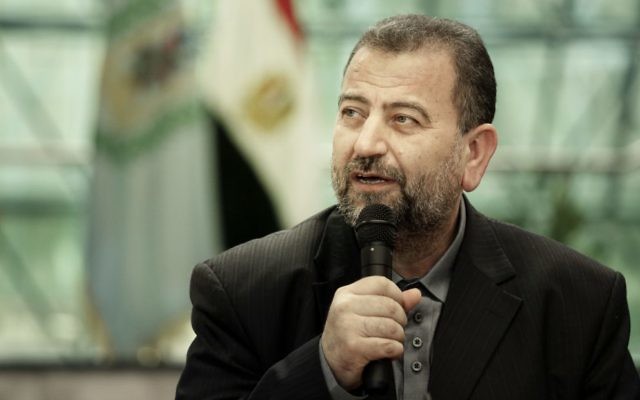Hamas extremism on show in Iran
Palestinian reconciliation won't cause Hamas to moderate, the group signalled last weekend by sending a senior official to Tehran.
PALESTINIAN reconciliation won’t cause Hamas to moderate, the group signalled last weekend by sending a senior official to Tehran.
Saleh al-Arouri, deputy chief of Hamas in Gaza, held meetings with the Iranian regime and emerged buoyant, saying that he had secured its “commitment towards Palestine and the resistance in Palestine”.
The visit was a blow to international observers who hoped that the new reconciliation process between Hamas and its main adversary, the Palestinian Authority, would cause Hamas to become less extreme.
Some even hoped it would meet Jerusalem’s demand for the group to disarm, recognise Israel, and honour previous international decisions.
But the international community was quick to interpret Hamas’s Tehran meetings as affirmation of its extremism.
“Hamas, which has only brought ruin and misery to Palestinians, now begs Iran for help and again vows to destroy Israel,” US envoy Jason Greenblatt tweeted after the visit.
Al-Arouri flaunted the fact that his Tehran visit defied the preconditions which Israel has called for in return for accepting a new Hamas-backed Palestinian unity government.
“Our presence in Iran is the practical denial of the third precondition – cutting ties with Iran,” he said.
The Tehran trip raised difficult questions for the Palestinian Authority, as well as for Israel.
Al-Arouri took the opportunity to say that Hamas won’t disarm, despite the fact that PA President Mahmoud Abbas has insisted that it must.
The Tehran trip has made the US and Israel even more sceptical that the latest reconciliation measures can get the peace process back on track.
In the Arab world, however, the assessment is completely different.
Egypt has been coordinating the reconciliation and said that it will lead to peace talks, and this week Jordan took the same position.
King Abdullah met Abbas on Sunday, and the King’s staff reported that he said the reconciliation agreement is “an important step in pushing forward the peace process”, and one that will result in a Palestinian state.
In an unrelated development in Iran, the regime has just sentenced a scientist to death for allegedly helping Mossad with information that helped Israel to assassinate Iranian nuclear scientists.
Amnesty International has identified the scientist as Iranian-born Swedish resident Ahmadreza Djalali.
Senior Amnesty International official Philip Luther claimed that his sentence exposed Iran’s “utter contempt for the rule of law”.
NATHAN JEFFAY


comments